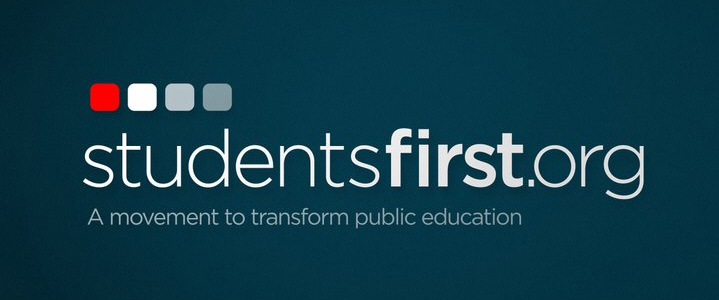By: Lindy Zeng
Earlier this January, California received an F grade in a nation-wide evaluation of education in the states. The test was conducted by StudentsFirst, an education advocacy group lead by Michelle Rhee, the former Chancellor of DC Public Schools. The State Policy Report Card judged state laws regarding education policies but did not take into account other factors such as test scores.
StudentsFirst’s report focused on laws that promote charter schools, allow intervention in low-performing schools, and bases teacher placement, salary, and layoffs on evaluations. States that didn’t implement these policies received low scores. The report ignored entirely traditional areas of focus, such as student achievement and per-student spending, which it believed did not encourage better teaching or learning.
Based on these scores, Rhee said, “It’s clear that we have a long way to go toward improving our education system in America.” California, especially, was given recommendations for improving the education system. The state received an F grade despite higher marks for its “parent trigger” laws, which allows parents to petition a change in faculty at low-performing schools and to convert them into charter schools. Out of the three categories in the report card, CA received F’s in “Empower parents” and “Elevate teaching,” and a D in “Spend wisely and govern well,” with a GPA of 0.69 overall.
California was given a low grade primarily because there is no existing law for teacher evaluations, which bases an instructor’s salary on ability to produce student improvement, and was the primary reason behind its rejection from the No Child Left Behind waiver request also earlier this month. The No Child Left Behind Law requires a 100 percent improvement in proficiency in standardized tests by 2014; failure to meet the deadlines set by this law affects the ability of parents to send children to other schools and targets the school for improvement and total overhaul. States could be exempt from the proficiency goals if they adopted reforms; CA rejected one of them, the usage of test scores for teacher evaluations.
This report met with protest and criticism, particularly. California’s chief deputy state superintendent of public instruction, Richard Zeiger, said, “This is an organization that frankly makes its living by asserting that schools are failing…this group has focused on an extremely narrow, unproven method that they think will improve teaching.” Teacher unions also criticized the report because it didn’t measure class size, graduation rates, and other academic factors.
In response to Zeiger’s criticisms about the organization and claim that this state’s F was a “badge of honor,” Rhee said, “perhaps he considers it a badge of honor that children are going into underperforming classrooms every day in CA without a way to choose a better school option? Maybe he’s proud that great teachers in CA aren’t paid adequately and are often laid off based on seniority, not effectiveness.” Previous surveys done by StudentsFirst in 2012 also revealed that a majority of Californians agreed our state has a lower quality of education compared to others. The survey discovered that 75 percent of Californians support ending the “last in, first out” layoff policy based off of seniority. CA’s lack of laws regarding teacher evaluations for salary, district placement, and layoffs certainly played a role in StudentFirst’s report card issued this year.
Eleven other states received a score of F and the highest score was a B-, awarded to Florida and Louisiana.






Be the first to comment on "California’s Report Card"